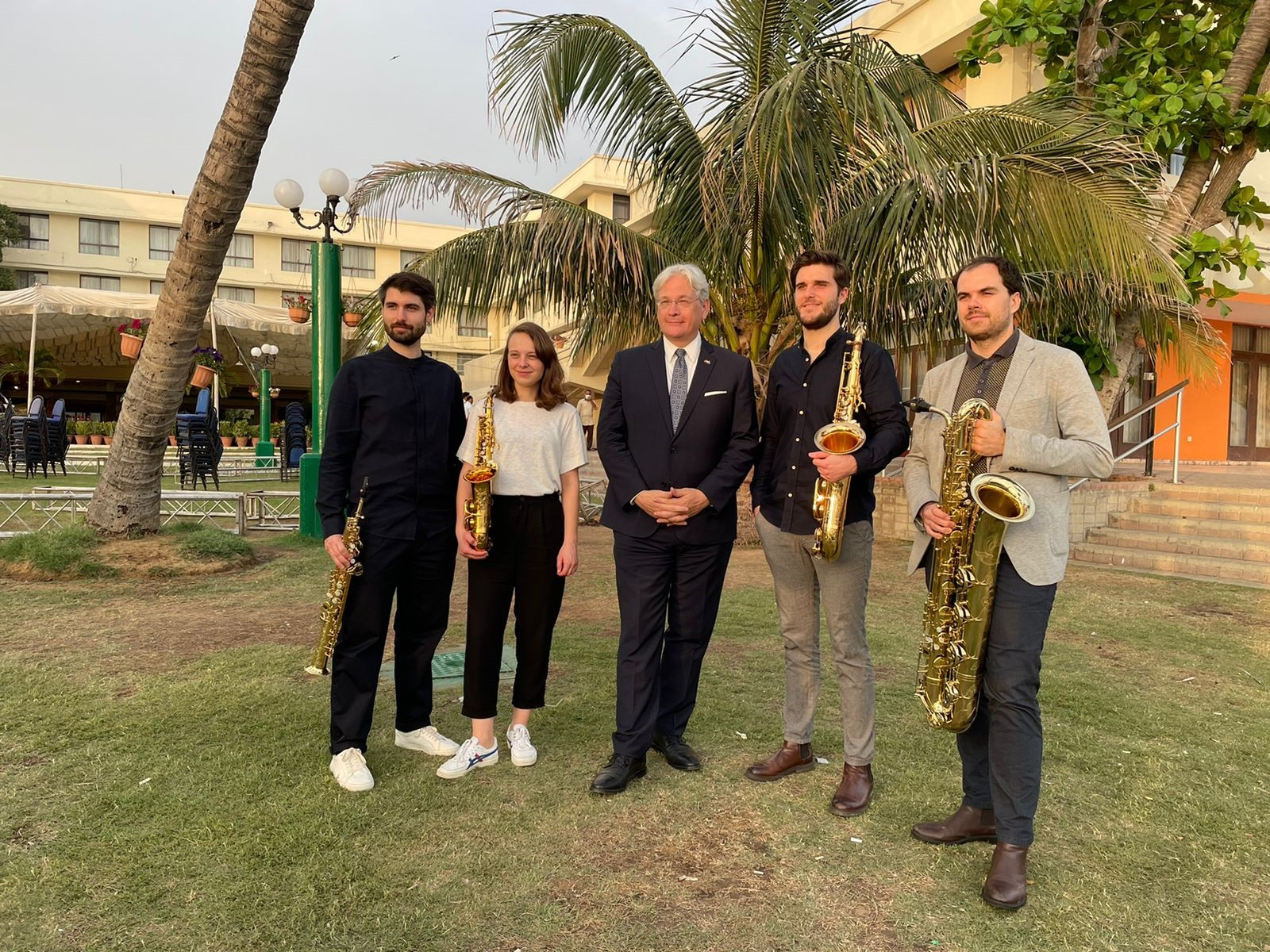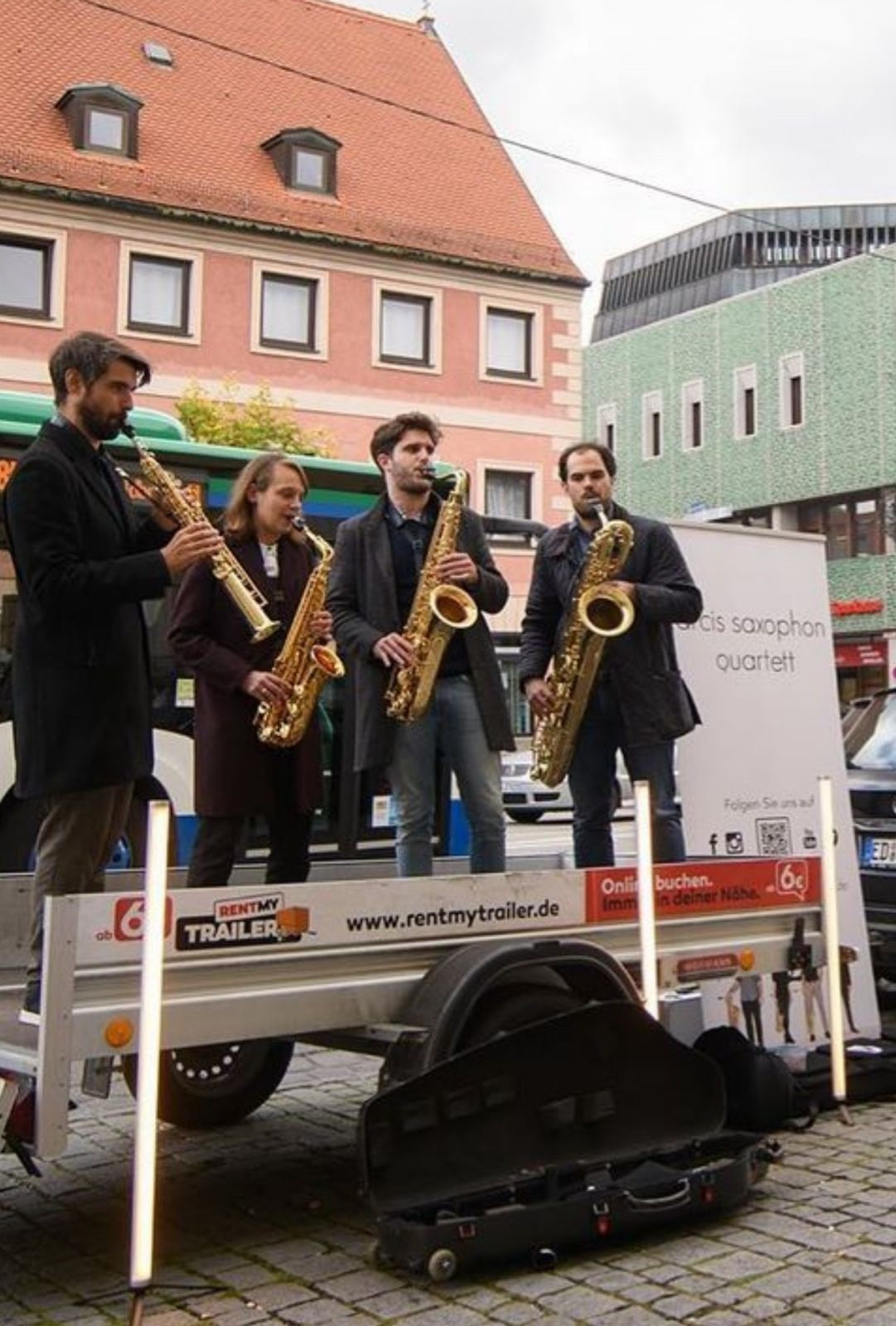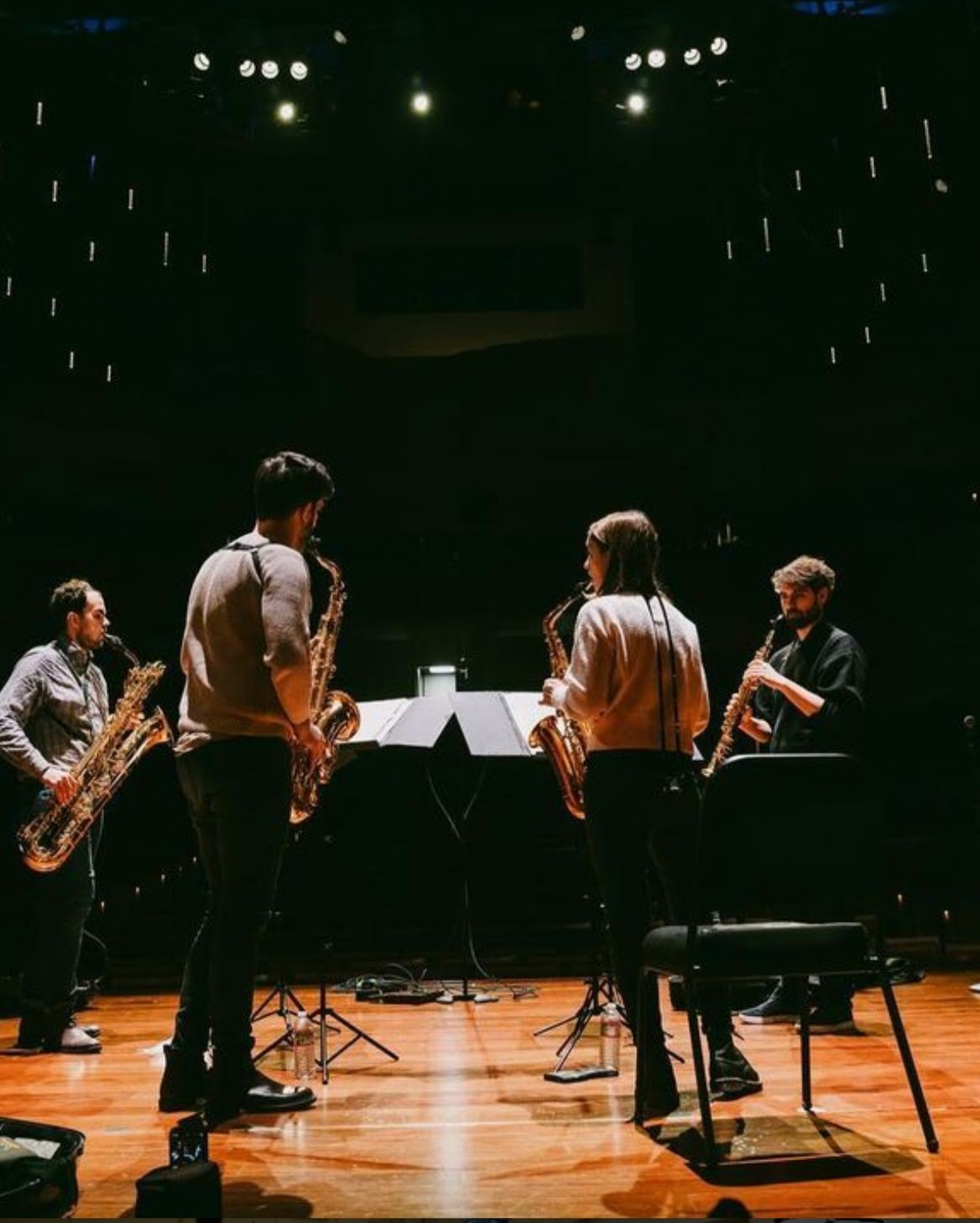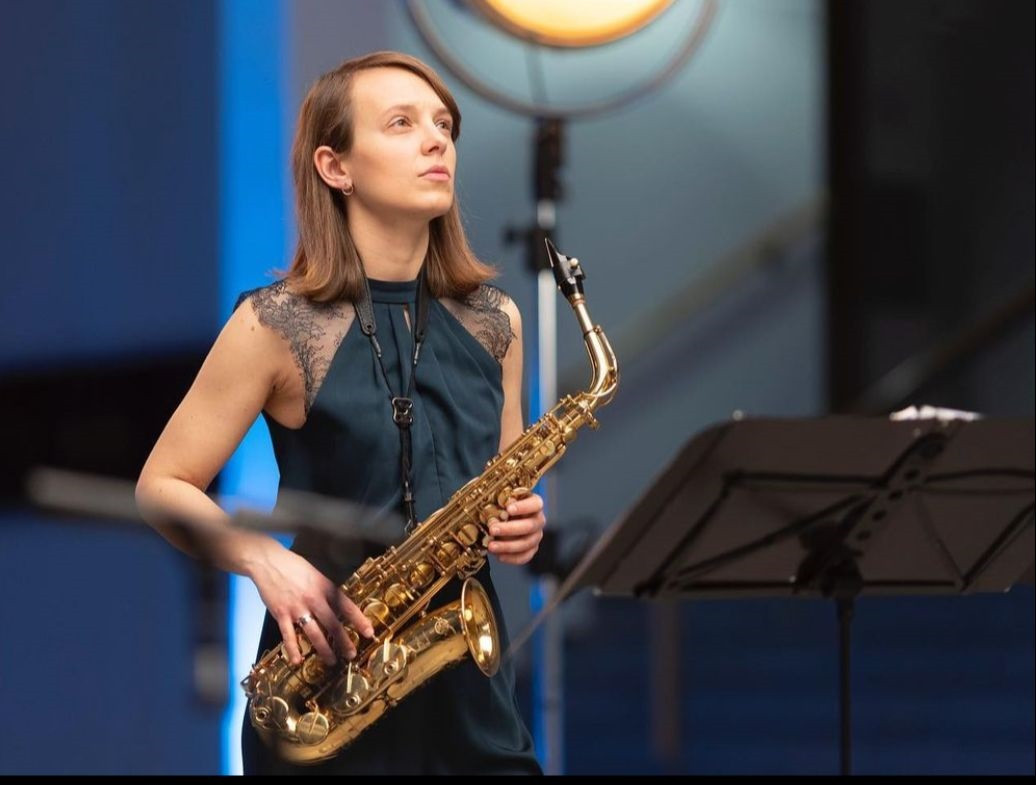While driving around theGerman countryside with his wife, Consul General Holger Ziegelerheard a captivating song on the radio. It had a classical feel, mixed with the rich and soulful sound of saxophone. Ziegler kept listening, awestruck. He later searched for information about the band, which he learned was called Arcis SaxophonQuartett. He sent the group a message on Facebook offering to organize tours and concerts for them around the world in collaboration with the consulate in Pakistan.
At first, the group didn’t believe that Ziegeler was serious about his offer, but soon enough they saw how strongly he felt about sharing their music. The collaboration between the group and the consul has been going on for five years now. Ziegeler, who is the current Consul General in Karachi, previously served in Saudia Arabia where the group performed twice. They performed in Karachi this week and will be performing in Lahore on Sunday. The tour in Pakistan is supported by the German Consulate and the German Embassy in collaboration with local performance spaces.
The band’s performances have happened in fits and starts over the past two years due to the coronavirus pandemic. Arcis Saxophone Quartett came straight to Pakistan from another performance in the United States. Ziegeler said he wants to promote the group’s talent in Pakistan where audiences appreciate classical music. The group has an eclectic repertoire of original songs mixed with new takes on old compositions like those of Sebastian Bach.
How it started
Arcis Saxophone Quartett was started by Ricarda Fuss and Claus Hierluksch in 2008 when the duo was studying together. Fuss and Hierluksch were originally joined by two other members who’ve since left the group to pursue other ventures. Two new members, EdoardoZotti and Jure Knez, joined the band seven years ago. The newer members are comparatively younger than the group’s founders, adding to the quartet’s unique style.

The group has had to adapt its touring during the pandemic, which they see as a new beginning. What remains constant is their belief that music has no language and can be used to bridge gaps between cultures. The experiences that led them to the band reflect their shared philosophies about music’s ability to mesmerize and unite people from every country. The members share their experiences discovering their instruments as young people.
Zotti, the group’s 26-year-old tenor saxophonist started playing the instrument as a 9-year-old when his mother implored him to take up music instead of basketball. Zotti said he was only required by his mother to play an instrument for a month but once he picked up the sax, he knew there was no going back.

In comparison, Hierluksch grew up with a father who knew how to play almost every instrument. In such a musical family, learning an instrument felt like a prerequisite. Hierluksch said he first started learning piano and later switched to saxophone. Similarly, Fuss, the group’s co-founder, was 13 when her father who also plays trumpet encouraged her to learn an instrument. She started with a wind instrument but ended up playing the saxophone.

The only artist who is not a German is 28-year-old, Knez. He migrated from Sovenia to Munich in 2014 to attend a music conservatory where he could focus on learning classical music. After finishing his studies, joined Arcis as a saxophonist. He started learning guitar as a child because he knew that starting saxophone at a young age can damage a child’s lungs and teeth if they’re not fully developed. He learned to play the flute for a year before shifting to saxophone, though he still enjoys playing guitar.
How it’s going
Traveling to different parts of the world has had a different meaning for the group members. For Fuss, the only female member of the group, it has brought certain realizations about how gender can be a setback in different parts of the world. When she first started traveling, Fuss said her family had a hard time understanding this dimension of her work. The first time she traveled to Saudi Arabia in 2018 she feared the reception towards female musicians might be different in that part of the world. But she soon realized that such a tour would only broaden the horizons of the group and the audiences.

In a band made up of different personalities, sometimes there are conflicts related to planning, making music, and performing. But band members say they get over these rough spots by focusing on the result of their collaboration: quality performances. The band thinks the music they produce can touch lives in Pakistan is because the audience has an eye for classical music, instruments, and styles. At the end of the day, the band wants to be unified and work together to create one sound, not four. “We might have different ways but blending more into one sound is what makes us stands out,” Knez said.
Musical futures
The band practices four hours together five times a week and they each practice separately as well. They’ve been still trying to figure out how to get back on track after the pandemic, and the trip to Pakistan has been a good first step. Still, they say it will take them a while to return to their pre-COVID schedule of 60-70 concerts a year. The members of the group are all full-time musicians and rely on the money they earn from performances as their main source of income. “This is the only work that we do, and we love what we do,” Knez said.
In the future, the band is exploring options for performing their songs online and producing their [own? Or producing with a label?] They remain committed to their classical style which has taken time and practice to perfect. They continue to experiment with old and new sounds to make songs that sound unique on the saxophone. “The dynamics of the music are the same across the world and music lovers have the same style and this is the best way to connect,” Fuss said.
So far, the response to the group in Pakistan has been positive. Their Instagram stories show them traveling around Karachi and visiting some of the cities popular sites, like the seaside. Ziegeler said he hopes to bring the group back to Pakistan to perform in a year or two in more cities around the country. “Here in Pakistan, there is a huge audience which loves classical instruments and music,” he said.
